Fighting corruption key to improving governance
Updated: 2016-10-25 07:45
(China Daily)
|
||||||||
 |
|
LI MIN/CHINA DAILY |
Comprehensive and strict management of the Party
 |
|
Asit K. Biswas, distinguished visiting professor at the Lee Kuan Yew School of Public Policy, National University of Singapore |
In the less than four years since Xi Jinping became China's top leader, China has made commendable progress and the country is now established as a global power. This was evident during the G20 Summit in Hangzhou in September. Xi's proposals in 2013 for a Silk Road Economic Belt and 21st Century Maritime Silk Road have already received considerable global interest and attention. The Asian Infrastructure Investment Bank has been established in a record time and at a much higher level than even its most ardent supporters expected. This is in spite of the fact that both the United States and Japan strongly objected to it for political reasons. And under Xi's leadership, China has ratified the Paris Agreement on Climate Change. It is expected to reduce its carbon emissions per unit of GDP by 60 to 65 percent between 2005 and 2030, a Herculean task under the best of the circumstances.
But while China has made remarkable social and economic advances over the past three decades, it has also been facing economic headwinds in recent years. Its economic growth rates have slowed, and a big challenge now is how to reenergize and reinvigorate the world's second largest economy so that it does not fall into the dreaded middle income trap.
Not surprisingly, as the economy grew, corruption increased. Now the top leadership, headed by Xi, has made fighting corruption a central pillar for improving the governance of the country. The anti-corruption campaign has picked up steam.
 |
|
Cecilia Tortajada, a senior research fellow at the same School |
This year's plenum is likely to approve rules for good governance which must be followed by important Party institutions, and all cadres, including powerful members of the Central Committee and the Political Bureau. The rules of political conduct for Party members were drawn up during the era of Deng Xiaoping, and the rules of internal supervision of the Party were approved in 2003.
China will change even more over the next decade. Thus it requires new rules of governance, which need to be strictly implemented in a transparent manner.
The CPC has been in power for 67 years. Party chief Xi and the Party need to think for the long term. He needs to put the Chinese Dream of national rejuvenation at the top of his political agenda so that by 2021, the 100th anniversary of the founding of the Party, China becomes a moderately prosperous country. This can be achieved if the Sixth Plenum approves the new norms of good governance which would guide political life under changing conditions and will cover all government institutions and officials at every level.
- Documentary reaffirms resolve to fight corruption
- Corruption 'sending whole family into abyss'
- Acts of corruption slowly got 'out of hand'
- Former senior official in Shanxi stands trial for alleged corruption
- Ling Zhengce stands trial for corruption
- Ex-leader of Shanxi's capital gets life in prison for corruption
- China cautions against corruption, extravagance in holiday
- Four former senior officials charged with bribery in action against corruption
- Fate of child migrants uncertain before France demolishes Jungle camp
- Former Japan SDF official believed to have blown himself up, injures 3
- Dogs rock Halloween parade in NY
- Somali pirates free 26 hostages held since 2012
- At least 172 inmates break out of Haitian prison
- US vows response once DPRK launches nuclear weapon successfully

 Through the lens: Under the blue sky of Tibet
Through the lens: Under the blue sky of Tibet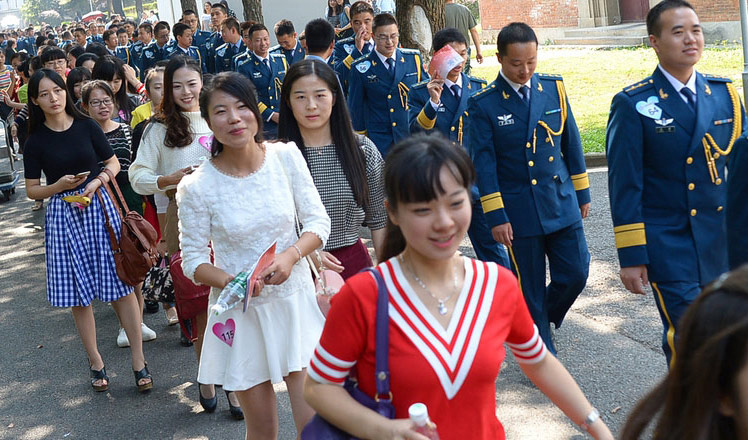
 Military blind date attracts hundreds young women
Military blind date attracts hundreds young women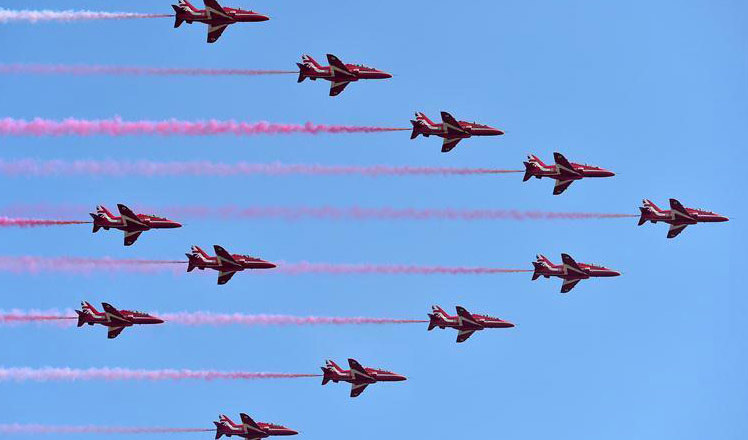
 Britain's Red Arrows arrive at Zhuhai for China air show
Britain's Red Arrows arrive at Zhuhai for China air show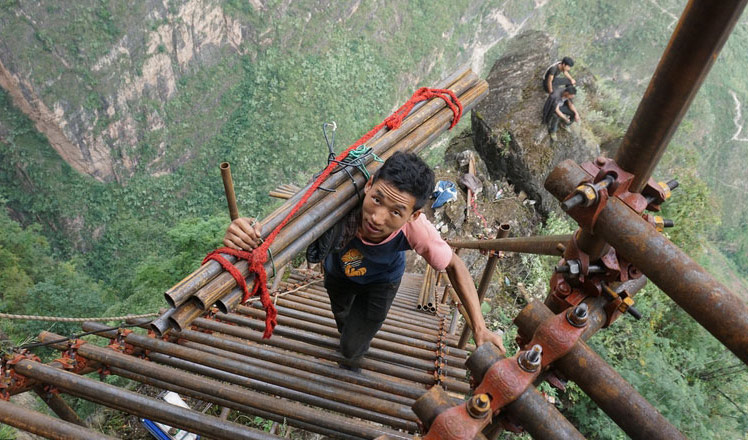
 Villagers build ladder on cliff with 1,500 steel pipes
Villagers build ladder on cliff with 1,500 steel pipes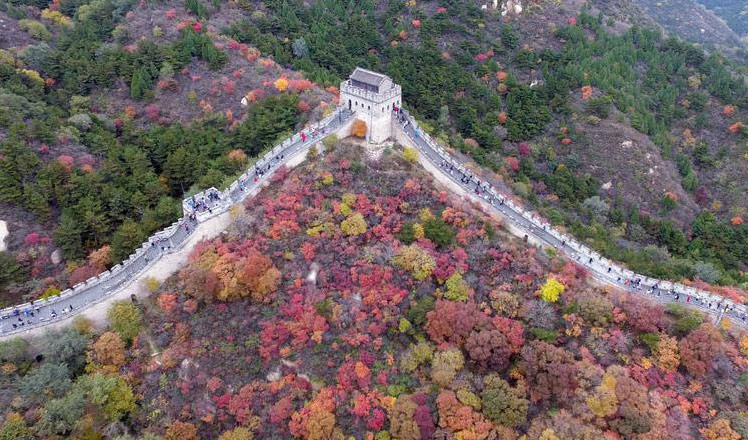
 Colorful leaves adorn Great Wall in Beijing
Colorful leaves adorn Great Wall in Beijing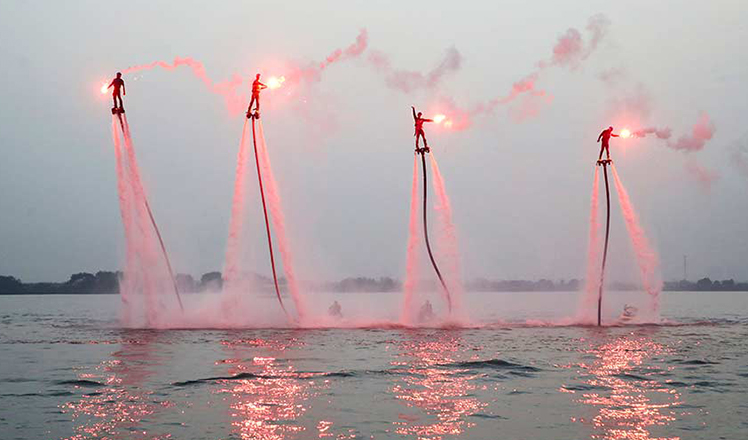
 Ten photos from around China: Oct 14-20
Ten photos from around China: Oct 14-20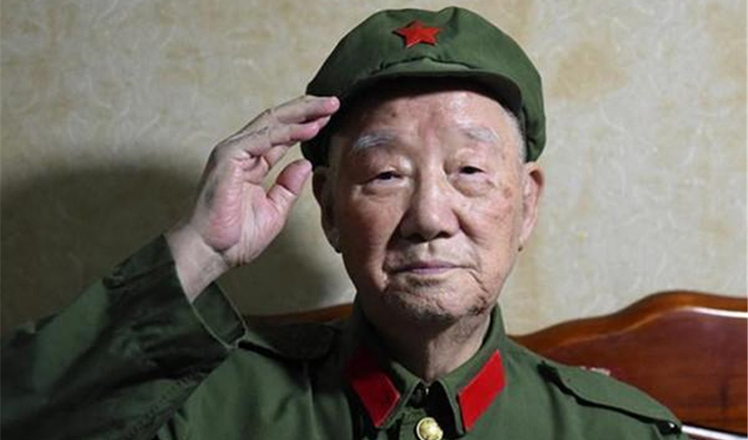
 Veterans mark 80th anniv. of end of Red Army's Long March
Veterans mark 80th anniv. of end of Red Army's Long March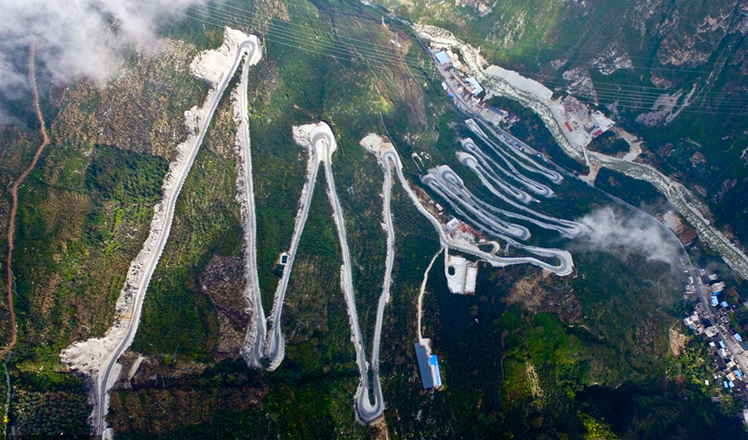
 Road with 24 bends zigzags in Southwest China
Road with 24 bends zigzags in Southwest China
Most Viewed
Editor's Picks

|

|

|

|

|

|
Today's Top News
'Zero Hunger Run' held in Rome
Trump outlines anti-terror plan, proposing extreme vetting for immigrants
Phelps puts spotlight on cupping
US launches airstrikes against IS targets in Libya's Sirte
Ministry slams US-Korean THAAD deployment
Two police officers shot at protest in Dallas
Abe's blame game reveals his policies failing to get results
Ending wildlife trafficking must be policy priority in Asia
US Weekly

|

|







